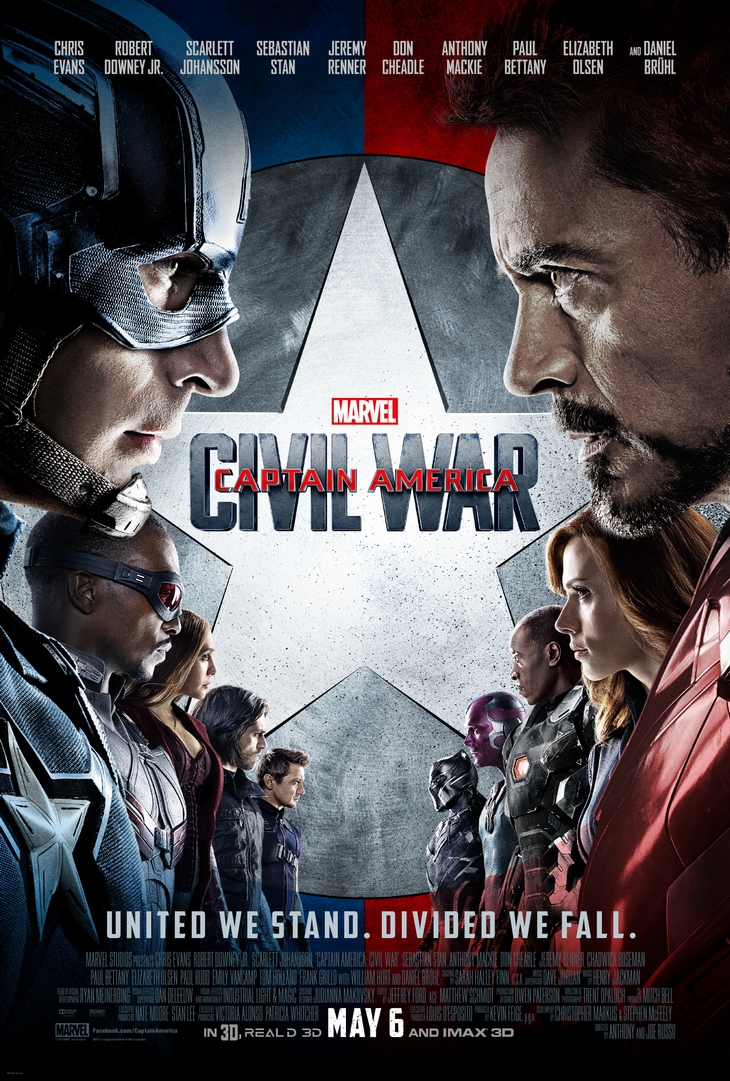
Among other things, some of the biggest reasons Captain America’s Marvel Studios films have been so well received are for the weight of its stories and the gigantic heart of its title character, and Civil War thankfully provides more of the same. However, it’s impossible for it to avoid comparisons with the recent Warner Bros release Dawn of Justice, due to both being superhero films that feature themes of conflict between heroes, manipulations from behind the scenes of a villain, and discussions on collateral damage.
But it’s that aforementioned heart mixed with a more measured if overly busy plot, better looking and less garish action sequences, and even bits of humor here that make Civil War not just the superior super-smackdown, but a fun and emotional action film in its own right. Christopher Markus and Stephen McFeely’s screenplay takes only a few base themes from the Mark Millar miniseries, and the Russo brothers return as directors to provide a tense atmosphere that nevertheless takes time out for its characters to breathe and have human moments with each other between the explosions and fisticuffs.
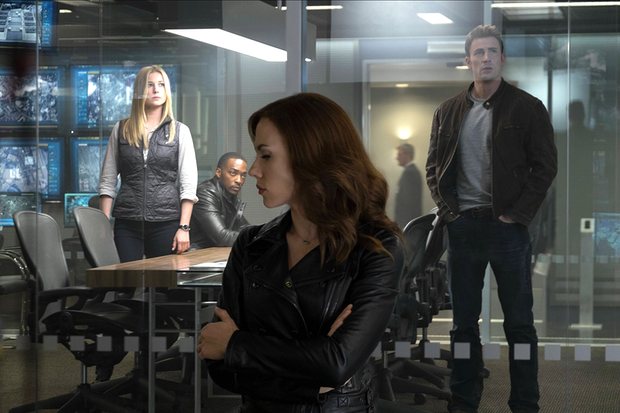
Rogers’s latest ordeal initially finds him in Lagos, teaming with Scarlet Witch (Elizabeth Olsen, who thankfully has dialed down Wanda’s accent a bit), Falcon (Anthony Mackie) and Black Widow (Scarlett Johansson) to stop deranged terrorist Crossbones (Frank Grillo) from stealing a chemical weapon. In the ensuing battle, Wanda tries but fails to contain a bomb and a nearby building is destroyed, killing numerous innocents.
Bruce Banner is absent from this film, but his long-time rival Thunderbolt Ross (William Hurt) has a major role as the MCU’s Secretary of State, and he confronts the Avengers demanding they sign an accord to allow a United Nations-sponsored body to hold them accountable. While Iron Man (Robert Downey Jr), still feeling guilt over the events in Age of Ultron, supports a signing, Captain America- as usual- doesn’t trust politicians and isn’t as open to the idea.
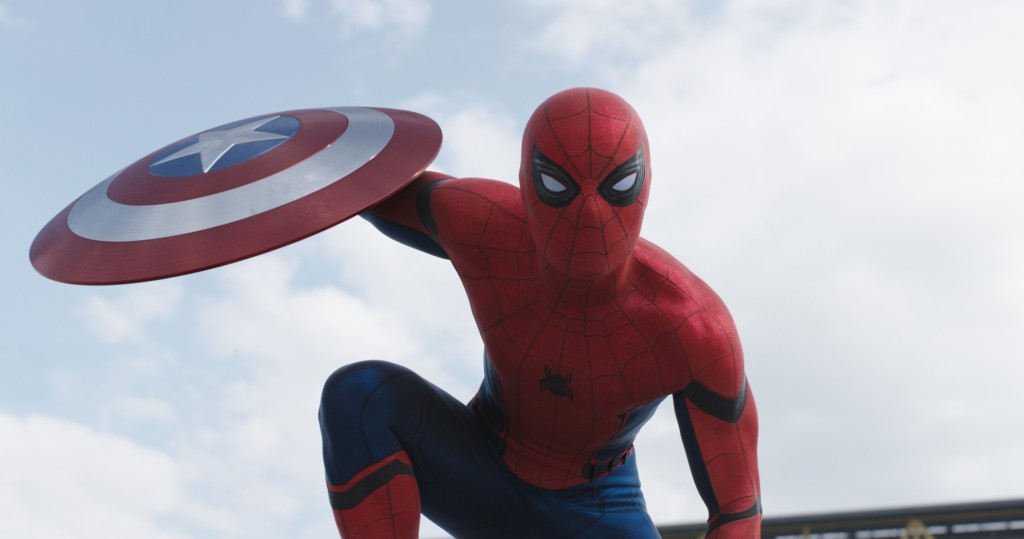
At this point, the film could have easily taken the easy road and completely vilified either Steve or Tony, but instead they take great care to make both of their perspectives sympathetic. And for as much as people talk about Captain America being a fairly simplistic “boy scout” character, Civil War is a strong character study for him as we get to see one of his biggest flaws out in the open: his stubbornness, which certainly isn’t bad enough to make him unlikable, but it does escalate his problems at certain points. When the accord signing is threatened by violence, Cap’s long lost friend Bucky Barnes, now the Winter Soldier, becomes a suspect and Steve immediately tries to get to the bottom of what eventually becomes a pretty compelling mystery- and hopefully save his childhood pal in the process.
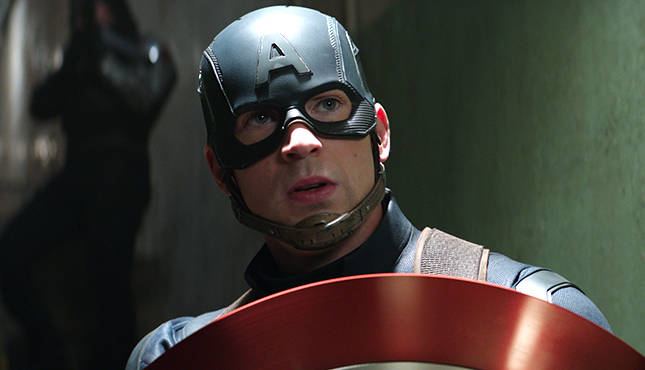
Though they don’t make Rogers and his struggles any less compelling, a variety of supporting heroes steal the show, each getting one or two memorably poignant or funny scenes. Chadwick Boseman is intense but stately as T’Challa, the African prince who pursues Winter Soldier as the Black Panther, and Paul Bettany plays Vision as a kind hearted android who is overprotective of Wanda following the Lagos incident.
Most of the action recalls the gritter feel of Captain America: The Winter Soldier, with the exception of a deliriously fun battle in an abandoned airport that feels very “Avengeresque” (I’m coining that as a new term), and it’s here where Tom Holland’s Spider-Man provides some great comic relief that ties in well with the action, as does Paul Rudd whose Ant-Man is practically an oversized kid meeting Rogers for the first time.
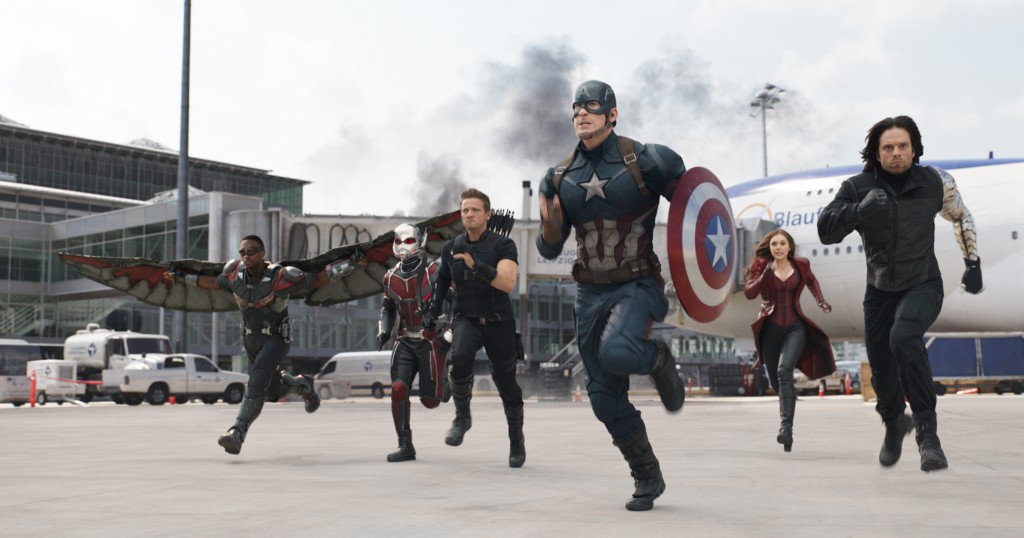
Still, none of these elements prevent Civil War from taking a much more serious turn than either the first two Avengers or Cap films, and it helps that just about the whole cast gets enough screen time to feel like they at least weren’t wasted. I suspect that could change as the MCU enters its next phase and more characters are stuffed into their films, but here there’s enough balance to where I didn’t feel overwhelmed. That combined with Rogers’s vulnerability and the maturity of the story gives its patriotic lead a very strong trilogy of films across the board, so if you’re not burned out on superheroes it’s an easy recommendation from me.
